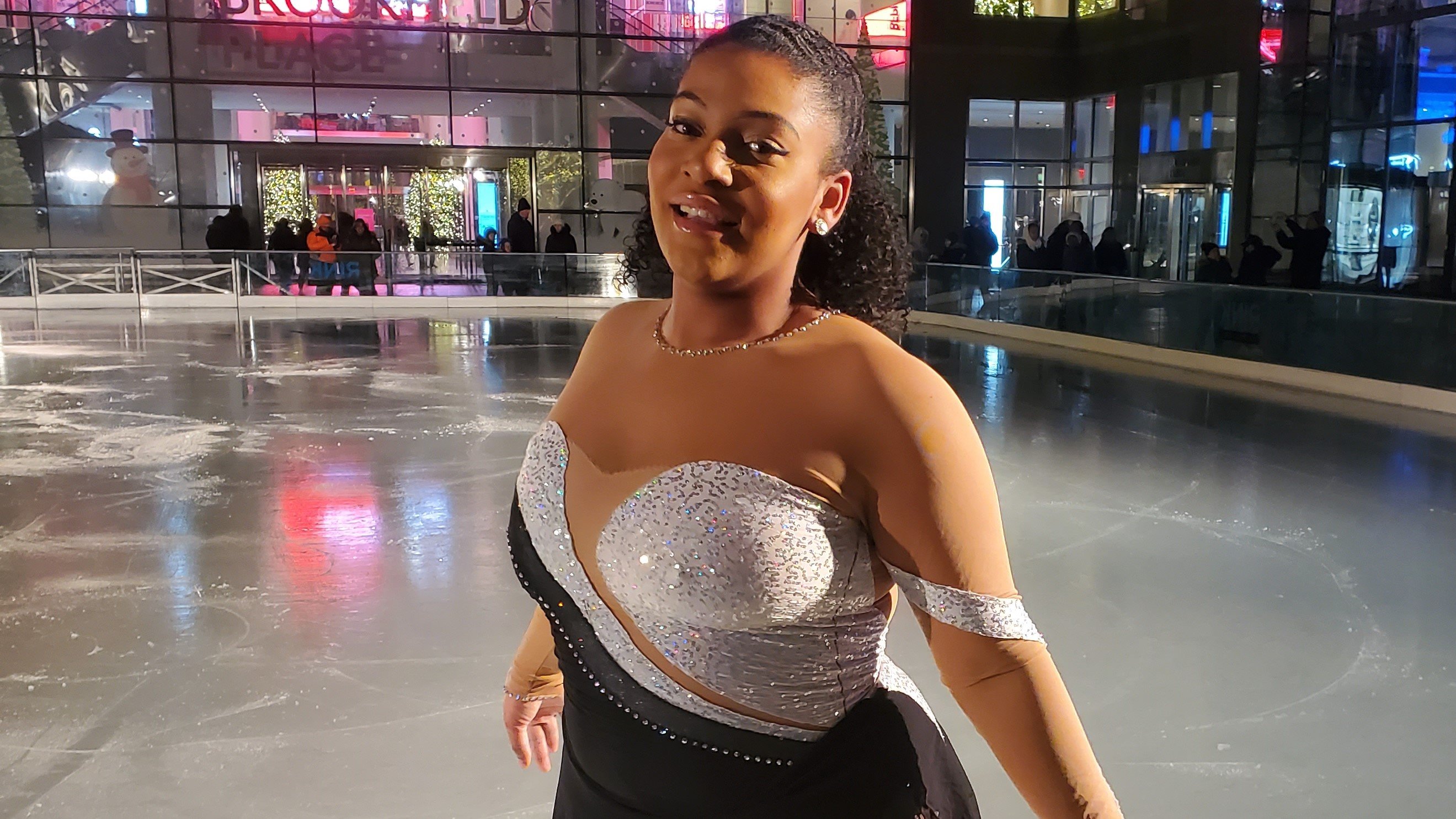National Get Up Day is Feb. 1. Through the month of February, U.S. Figure Skating will be featuring its eight Get Up ambassadors. The following story appeared in the January issue of SKATING magazine.
By Ed Rabinowitz
The physical challenges associated with figure skating are significant. Olivia Alexander understands that.
But it has been the mental adversities that Alexander, a Black skater, has had to rise above that have perhaps been the most challenging.
Alexander, now a junior at Goucher College in Towson, Maryland, ate, slept and breathed skating while in high school in order to qualify for the Excel National Festival, where she placed second at the intermediate level.
“I trained really hard, and it was extremely gratifying,” she says.
Alexander fell in love with skating at age 5 after seeing Disney on Ice’s “Finding Nemo.” Shortly thereafter, her mother signed her up with a local figure skating club. Alexander flourished.
“I was in dance, soccer, gymnastics, but I got a different feeling from skating than any other sport,” she says. “And when I started to learn to do jumps it was like I was flying. I don’t think there’s any other sport where you get that feeling.”
Alexander eventually became a member of the organization’s synchronized skating team, but after several years of skating, she felt she was hitting a plateau in her skating career. She attended a workshop in Newburgh, New York, with Olympic medalists Larisa Selezneva and Oleg Makarov, who agreed to take her on as a student. Four times each week — twice during the week after school, and both weekend days — she made the 90-minute trek in Newburgh. She loved the challenge.
“Everyone was pushing themselves,” she says. “When you’re in a competitive environment like that you push yourself even more, beyond what you thought you could do.”
But it was during training camps when Alexander began hearing “micro aggressive comments while skating.” She often heard “the N-word used casually,” and found herself being tied to stereotypes.
“People unintentionally think Black people are more aggressive than they are,” Alexander says. “I think people perceived that because there were times when I felt while training I had to work harder to get the attention of my coaches.”
Alexander developed a friendship with figure skating instructor Lari Estridge.
“We gravitated to each other because as a skater of color, and a coach of color, it’s hard to find people who look like us in the arena,” Estridge says. “I know for myself, and Olivia, too, talking with other people at the rink about what’s going on isn’t always helpful because they don’t have that shared experience.”
Estridge says that at no point did Alexander ever reflect people’s comments and meanness back to them. Instead, she used the anger she felt as fuel and put it entirely into her skating.
Alexander agrees, but acknowledges that after a while people’s comments and reactions wore her down mentally.
“When I came back from [an event], I was told I make people not want to compete against me because I competed too intensely,” Alexander says. “People thought I was unsportsmanlike. It felt so overwhelming during one of my lessons that I walked off the ice and began crying. I felt so alone at camp.”
Alexander continued to compete but looking back she sometimes wonders whether it was all worth it.
“I look at pictures when I was on the podium and I was not smiling,” she says. “I probably thought I was smiling, but I look upset. So it’s great that I pushed myself, but it also hurt me in the end.”
Alexander has shared her experience as a Black skater. She skated at Diversity Ice’s Juneteenth fundraiser in 2021, and with a friend co-founded the organization Black Girls Like Me.
“The organization helps Black women find mentorship with older women who are in successful careers and realize there are many career paths you can go down,” she says.
Alexander, a sociology major at Goucher College, says her dream is to work in diversity inclusion with U.S. Figure Skating or the National Hockey League, and focus on mental health for athletes, “because it’s so overlooked.”
And, she adds, skating will always be part of her life.
“Skating has made me who I am as a person,” she says. “It has made me very resilient and given me structure. I’m probably never going to give it up.”


